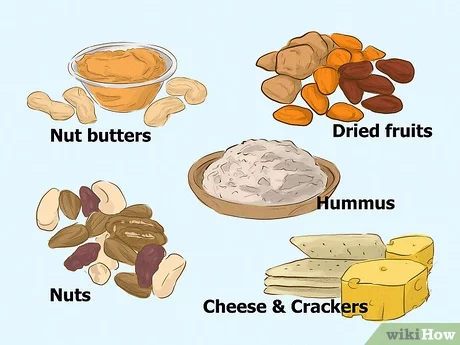Tips to help you gain weight gain weight slowly by adding healthy calories – adults might try adding about 300 to 500 extra calories a day eat smaller meals more frequently, adding healthy snacks between meals add extra calories to your meals with cheese, nuts, and seeds have high-calorie drinks between meals, such as milkshakes
Eat a balanced diet – include a variety of different food groups. For example, fruit and vegetables, starchy carbohydrates and dairy and alternatives
include protein in your meals, such as beans, pulses, fish, eggs and lean meat
have easy-to-prepare snacks, such as yogurt or rice pudding
do some strength training or yoga to build up your muscles – regular exercise can also help you have a better appetite

do not
Avoid using chocolate, cakes, and sugary drinks to put on weight. Similarly, don’t drink so much liquid before meals that will fill you up. Raise your calorie consumption The crucial thing you can do if you want to gain weight is taking in a calorie surplus, meaning you have to eat more calories than the total amount your body needs.

You may calculate the needs of your calorie using this calorie calculator.
If you want to take a more measured approach to weight gain, add 300–500 calories over and above what you burn each day using the calculator. If you want to gain weight a bit quicker, aim for roughly 700–1,000 over maintenance.
Remember that calorie calculators are just very rough approximations. Your own requirements might be hundreds of calories higher or lower every day, either way.
Eat more protein
It is essential to consume enough proteins of good quality to accomplish and maintain maximum growth, development, and overall healthTrusted Source.
A 2020 study conducted on 23 individualTrusted Source showed that lean muscle mass can be increased when the levels of protein are higher.
According to FDA, the per-day consumption of proteins by adults is supposed to be 50 g. These are easily variable based on different personal factors such as age, sex, and medical conditions.
Some high protein foods include:
meats
fish
eggs
dairy products
legumes
nuts
Eat more carbs
Carbs, alone, will not lead a person to develop weight gain, but they can provide a good way of getting extra calories. Here are some foods that contain healthy carb compounds: oats quinoa fruits like orange, banana, and blueberry sweet potato buckwheat
Carbohydrates have played an important role in your healthy diet. It is also true that the daily intake of carbs has become largely different depending on several factors such as the individual’s age, sex, and their general state of health.
Take in more energy-dense foods
It is vital to make sure there is plenty of energy-dense food in your diet. They are those kinds of foods with many calories concerning weight.
Using plenty of spices, sauces, and condiments can help with this. The more flavorful your food is, the easier it may be to eat more. Toppings may also add extra calories.

Here are some energy-dense foods that might help you gain weight:
nuts such as almonds, walnuts, macadamias, and peanuts
dried fruit such as raisins, dates, prunes, and others
high fat dairy such as whole milk, full-fat yogurt, cheese, and cream
Fats and oils: extra virgin olive oil, avocado oil Grains: oat and brown rice Meat: chicken, beef, pork, lamb- use fattier cuts Tubers: potatoes, sweet potatoes, yams Other calorie-dense foods: dark chocolate, avocados, peanut butter, coconut milk, granola and trail mix Dress Up Your Salads
Don’t cut nutritious foods like salads out of your menu because you think they are too low in calories. You can ramp them up with healthy fats like olive oil and add-ons like avocado, cheese, nuts, and seeds. Or try fruit such as apples, pears, and berries to give it a little zip.
Suggestions include:
Use a kilojoule-counter book to work out how much you actually eat in an average day. It might be less than you think.
Have three nutritious meals daily. Allow yourself a little more food if possible
If you have a poor appetite, have five to six small meals each day. Have fluids before and after meals, but not with your meals. This leaves more room for food.
Gaining weight successfully means that you need to increase your daily intake of carbohydrates. Avoid low carbohydrate diets.
Large volumes of dietary protein will not enlarge your muscles any quicker and will put unnecessary stress on your body, especially your kidneys. Also, avoid high-protein diets.
A useful snack may contain fruit, yoghurt, muffin, rice pudding, low fat custard, milkshake or liquid meal supplement.
Avoid fried foods and high-fat junk foods. Instead choose healthy high-fat foods such as avocado or nuts.
Sprinkle some concentrated calories on your usual foods such as: grating cheese on foods. Spread peanut or almond butter on a whole grain muffin.
Cook hot oatmeal or other cereal with milk instead of water. Add powdered milk, honey, dried fruits or nuts after cooking.
Garnish salads with sources of healthy oils such as olive oil, whole olives, avocados, nuts and sunflower seeds.
Lifestyle changes to gain weight Suggestions include:
Be prepared to take food even when not hungry.
Use a timer to remind you every two hours that it is time to eat.
Try to make these extra eating sessions as pleasant as possible. For example, stock the fridge and cupboard with snack foods that you like.
Have small serves of protein foods before and after each resistance training session to help stimulate muscle growth.
Accept bloating or gas may occur due to increased intake of food.

